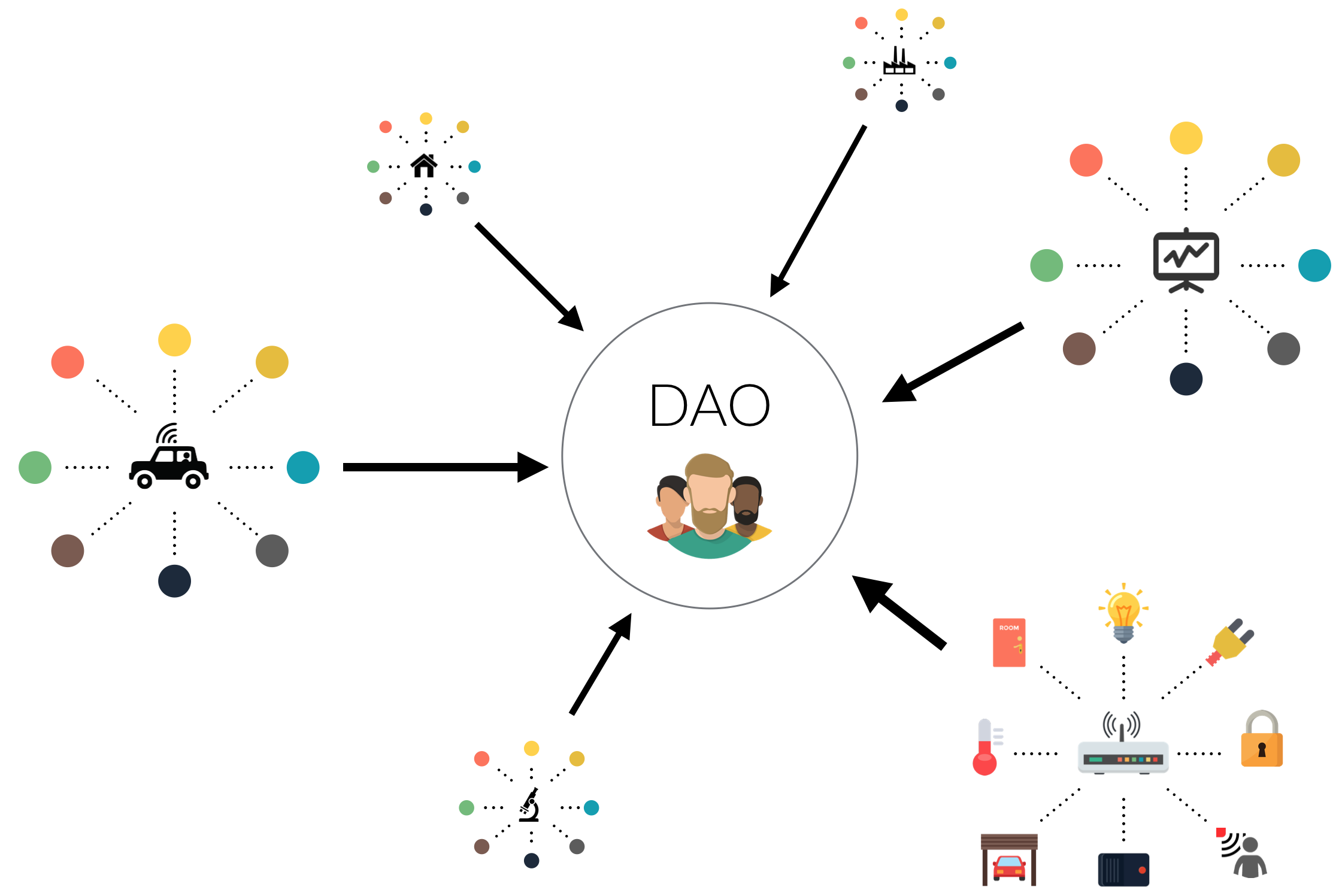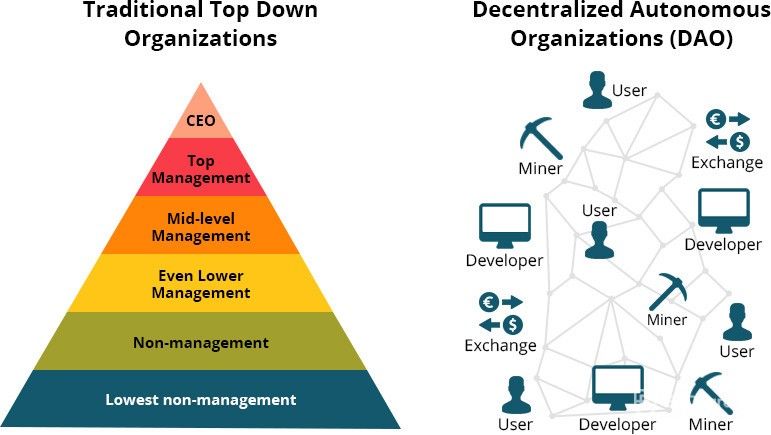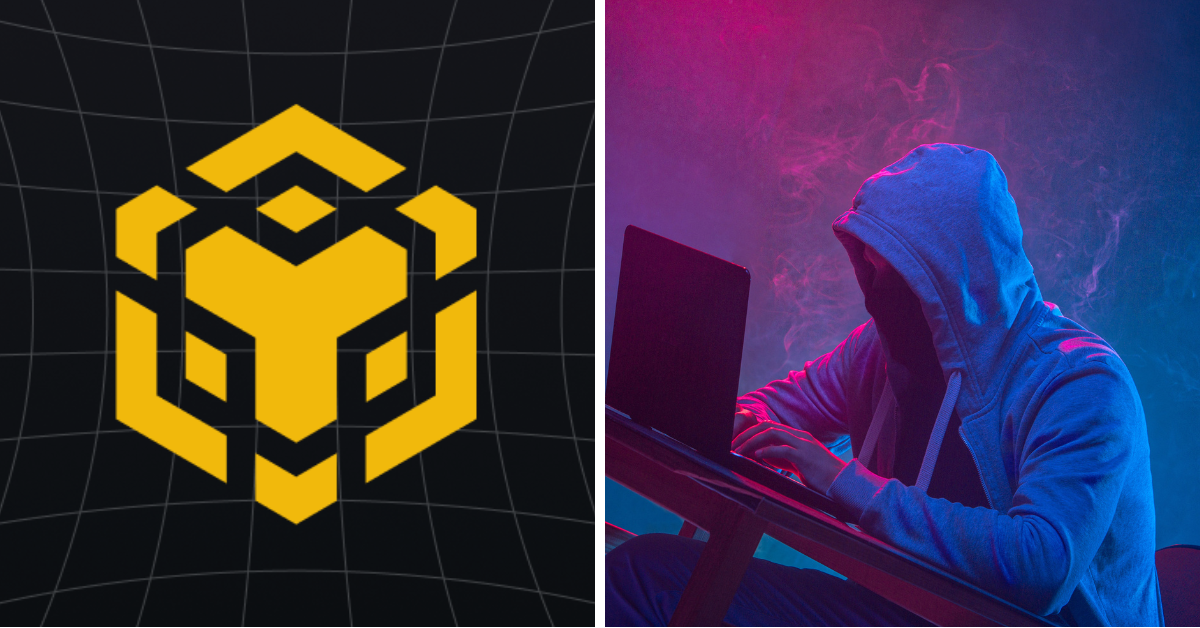Organizational form from the future: DAO
What is DAO
DAO, Decentralized Autonomous Organization, Chinese is a decentralized autonomous organization . Here is the definition from Wikipedia:
A decentralized autonomous organization is an organization that is completely controlled by the participants and is not affected by any centralized subject. Make decisions using procedures written in open and transparent code. The financial transaction records and procedures of the decentralized autonomous organization are kept on the blockchain.
In simple terms, DAO is an organization dominated by rules written by computers, not by people.
- Can Bitcoin, which has an edge over gold, be a true safe haven?
- The future of Ethereum determines the future of the blockchain?
- What exactly is Bitcoin, money, currency or value storage?
Let's take an example: there is a working QQ group without a group owner and an administrator. Each member can be automatically assigned to the corresponding job after joining. The QQ group will automatically pay taxes after creating value and follow the steps when entering the group. The agreed remuneration is automatically distributed. If a person's job offer is to be cancelled, a collective vote is required.
The above QQ group is a simple DAO. In the DAO, people can focus on the work to the greatest extent and reduce the loss of time and resources in the hierarchical management system. The goal of DAO is to provide valuable services in the free market for the benefit of participants, and when designing DAO, keep this goal in mind and maximize the value of participants.
origin
DAO's first proposal was made in September 2013 by Daniel Larimer regarding the unreasonable spending of Bitcoin. However, because Bitcoin does not have Turing completeness (it cannot be programmed on it), it was not until 2015 that when Turing completeness Ethereum was launched, DAO came in for real use.
How DAO works
Because DAO is a new thing, many communities will have their own DAO, and each DAO runs differently. The DAO described below is just one of them:
- Writing smart contracts. Smart contracts are written on the blockchain and are a set of computer programs used to execute various commands. Smart contracts are open and transparent, and anyone can see every line of code.
- Fundraising. An organization naturally needs funds. Unlike the traditional company system, investors will not get shares, but tokens. Tokens are the representative of rights and interests. Holding tokens can have the following rights and interests: voting rights, proposal rights, income rights, and the right to use various services provided by DAO.
- Proposal and voting. When the smart contract is released, the operation of the DAO is not under the control of the initiator, and all decisions will be executed after consensus is obtained. Anyone holding this DAO token can initiate a proposal and vote. After reaching a certain percentage of consensus (the percentage is written in the smart contract), the DAO will automatically execute the corresponding instructions.
- Circulation of tokens. In the traditional company system, equity transfer requires the signing of a contract, the submission of various documents, and waiting for review before success. But the circulation of tokens is as convenient as a transfer, and can be completed in minutes or even seconds.

Advantages and disadvantages of DAO
advantage
- Eliminate malpractices. DAO funds are obtained and used in an open and transparent manner. The source and destination of each fund is very clear, and there is no underground transaction.
- Reduce communication costs. There is no room for negotiation in the implementation of a certain decision. It only needs to run according to the contract and the proposal obtained through voting.
- Reduce management costs. DAO has no hierarchy, no CEO, no manager, and no management costs.
- equality. DAO has no hierarchy and all people are equal. No one has decision-making power. Everyone can come up with a plan for the organization and it can be used.
- Unity. All participants hold DAO tokens. The better the DAO works, the more valuable the token will be. So all participants have the same goal, which is to make DAO work better. At the same time, it takes a certain amount of tokens to make proposals and vote. Therefore, voters will start from the DAO's perspective and sincerely seek benefits for the DAO.
Disadvantage
- Security concerns. The core of DAO is the smart contract. Although the smart contract can be modified, it needs to pass the proposal and voting procedures, so the time period is long. If hackers find loopholes in the contract and do evil, the response time of the DAO will be quite long, and the losses will be greater than traditional organizations.
- Decisions agreed by multiple people are not necessarily good decisions. Equality is both a strength and a weakness. Ordinary participants do not have the ability to make the most correct decisions. They generally follow opinion leaders. Once public opinion is dominated by ulterior motivated opinion leaders, truly correct decisions are buried.
- Law is missing. At present, DAO has no legal status, and most of the tokens do not have the legal property attributes. There is still a long way to go to improve relevant laws.
- Great mobility. Joining and withdrawing from DAO is very simple, and the transfer of tokens is also very simple, which will lead to increased personnel mobility.

What Samuel thinks
DAO is a great innovation. Many different DAOs have their highlights and uniqueness. Some designs can only be described by "genius". But it is also because of subversive innovation, that aside from legal issues, he still has a lot of resistance. If DAO wants to grow, it must first solve the underlying and innate problems, such as the problem of long decision-making time and multi-person decision making is not a good decision.
At the same time, the popularity of DAO will lead to the weakening of management, and instead will increase the importance of designers. In addition, the status of opinion leaders will be greatly improved. These innovations also require a long evolution.
In the end, the benefits brought by DAO, and whether the reduced cost is large enough to promote this great innovation, is also a question.
But we are glad that many organizations are trying, and they are using practice to prove that the advantages of DAO outweigh the disadvantages. Whether they succeed or fail, their experience is worth learning from.
This article was originally created by Samuel, and the pictures are from the Internet. Thanks to Typto @ DAOSquare for taking the time to answer Samuel's questions.
We will continue to update Blocking; if you have any questions or suggestions, please contact us!
Was this article helpful?
93 out of 132 found this helpful
Related articles
- From the perspective of investment, should we focus on business or technology? Babbitt Industry Welcome Class
- Chain Security founder Yang Xia talks about asset security issues that ordinary users should pay more attention to behind the whale attack | Chain Node AMA
- Bitcoin hits the 120-day bull-bear dividing line, and the overall market in March may open a bull market!
- Blockchain testing water judicial process, supervision technology needs to be improved
- KLM uses R3 blockchain technology to streamline intra-company settlement processes
- DeFi Monthly Report | bZx incident rethinking, what do DeFi oracles, insurance, and governance do?
- ChainNode Live Room | Derivatives track has become an industry consensus. Bitcoin will be up to $ 20,000 in the year?





